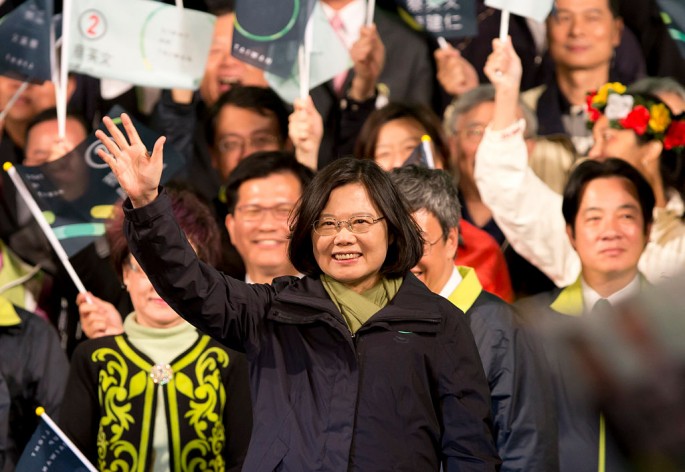Taiwan’s newly elected president Tsai Ing-wen vowed to maintain the status quo in the island’s relationship with mainland China but will do so following her party’s democratic principles.
According to Reuters, Taipei's president-elect is planning to maintain, if not improve, ties with the mainland by governing the small nation with democracy.
"What will be different from the past eight years is that the promotion of cross-Strait ties will have to be based on the principle of democracy and people's desires," Tsai said in a statement, referring to the water that separates the island from the mainland. "Only in this way can the cross-Strait relationship last and give 'maintaining the status quo' real meaning."
But Tsai's plan will most likely not work well with China's leaders, who intend to uphold the "one China" policy agreed upon by Taiwan's outgoing Nationalist government.
Taiwan's Journey to Democracy
Taiwan has long been regarded by the mainland as a wayward province which should be ruled by policies and laws in China, but many Taiwanese citizens want a separate nation.
Historically, the first settlers of the island of Taiwan are believed to be people from Southern China.
BBC News said that the island first appeared in Chinese records at a time when China sent an expeditionary crew to explore it in A.D 239 but Taiwan was tossed around after that.
From 1683 to 1895, the island of Taiwan was "unquestionably" ruled by China under the Qing Dynasty, but was later ceded to Japan after China lost the first Sino-Japanese War.
After the Japanese lost the World War II, the United States and Britain both decided to hand over the island to Chiang Kai-shek's Republic of China, which was their ally at the time.
When Chiang was defeated by the Communist armies controlled by Mao Zedong, the remaining members of his Kuomintang (KMT) government sought refuge in Taiwan in 1949.
After Chiang passed away, the KMT dictatorship, which was later inherited by his son, Chiang Ching-kuo, started to undergo democratization which led to the election of the island's first president, Chen Shui-bian, in 2000.
Taiwan's First Female Democratic President
On May 20, Tsai Ing-wen will begin her reign as the first president from a democratic party in Taiwan.
A few weeks before her ascent, she effectively made her point on the Taiwan-China relations clear: democracy will rule the island.
"I have said several times in the past that the new government will do whatever we can to sustain the peace and stability of cross-Strait ties and make them consistent and predictable," she said, reiterating her promise to the Mainland Affairs Council as cited by the AFP posted on Yahoo News.



























